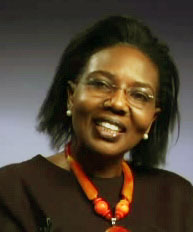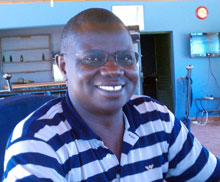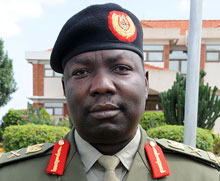If you come to East Africa, you must be prepared for the frequent invocation of these seven words.
I’m always interested to see how Americans react to the frequent shifts in schedule brought about by conditions on the ground in a country like Uganda, where poor infrastructure, rapid-fire cellphone communications, and a cultural disposition generally toward the flexibility of time, all combine. Schedules are, at best, estimates, sketches of leading possibilities, which may be altered drastically at any moment. Some Yanks get completely undone by this, others easily go with the flow. The best way to view time, here, is as an ongoing portal for the Holy Spirit. Time is not something inanimate to be carved up into chunks. It is more like an inseparable element in a jazz composition that can only be written down after it has happened. You know where you were and what you did, more or less, but not really where you are going or what you will do. If you can’t live with that, you might want to explore mission in Switzerland instead.
Yesterday began as planned. I met with the Kampala leadership staff of Pilgrim for their weekly Monday morning devotions, led by our in-country co-ordinator, Hellen Grace Akwii. Hellen is the former Anglican Observer to the UN and is able to handle just about anything anywhere at any time. I am constantly impressed by her competence, resourcefulness and good humor. She is co-ordinating all the aspects of my visit, and I simply could not be in better hands. So, I led a meditation on 1 Thessalonians 1: 6-8 on how God has used Pilgrim staff to broadcast His glory even in a time and place of such affliction as post-war Teso, through the joy of the Holy Spirit which I see in their work and in their faces, and which I hear about everywhere. Afterwards I met individually with the staff, to get caught up on what they’re doing, hear about any personal concerns, pray with them and bless them: Miriam, who ran our clinic in Soroti and is now on point with the anti-malaria initiative; Edward, once our lead engineer in agriculture programs who now hosts packs of our foreign partners on their visits, such as the engineering faculty at UMass Amherst and members of Engineers Without Borders at Columbia; Claire, who helps William Omara run our accounting office; Titus, a former child soldier now working on an MBA, who once (little more than a teenager) drove a massive truck loaded with relief supplies through a kilometer of floodwaters in which he could not see the narrow causeway he had to stay on. In future posts, I will try to introduce you further to some of these remarkable people and their colleagues, in the context of what each of them actually does.
I got through about four interviews when Hellen knocked on the door to inform me the TV cameras had arrived. Unscheduled. And that was the end of the plan for the day.
My role in the TV interview (Rich Creehan, where were you??) wasn’t huge. Our director for the anti-malaria effort, Anthony Esenu, explained the details of the protocol and our role as chief implementing partner for the Global Fund in partnership with the Ugandan Ministry of Health. My job was a brief answer to the question of how we make sure money actually gets where it’s needed instead of into the hands of corrupt officials on various levels; so I waxed eloquent on the role of our auditors, our compliance with USAID standards and similarly fascinating topics for about ninety seconds. Hellen seemed pleased.
Afterwards I learned that my meeting with Dr. Christine Ondoa, the Honorable Minister for Health, had been shifted because the president had called an emergency meeting of his cabinet. She would be tied up well into the evening. Rescheduled for the middle of next week. I may have to make a special trip down from Soroti and back. I went over in my mind every pothole between here and there. Not a pleasant thought.
The afternoon was spent in conversation around strategy with Anthony and Calvin Echodu, who conceived the vision for Pilgrim and laid its foundations more than a decade ago. And the evening was spent with members of our African Board, our legal counsel, and a special guest, Major General Charles Angina (pronounced an-YEE-na), Chief of Staff for the Army of Uganda and an old friend of Calvin’s. Stories from the war filled the table, some of them terribly poignant and some so funny I nearly cried, reminding me once again of the courage and resiliency of my friends here.



